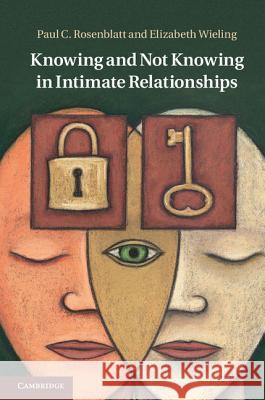Knowing and Not Knowing in Intimate Relationships » książka
topmenu
Knowing and Not Knowing in Intimate Relationships
ISBN-13: 9781107041325 / Angielski / Twarda / 2013 / 205 str.
Knowing and Not Knowing in Intimate Relationships
ISBN-13: 9781107041325 / Angielski / Twarda / 2013 / 205 str.
cena 468,41
(netto: 446,10 VAT: 5%)
Najniższa cena z 30 dni: 407,98
(netto: 446,10 VAT: 5%)
Najniższa cena z 30 dni: 407,98
Termin realizacji zamówienia:
ok. 16-18 dni roboczych.
ok. 16-18 dni roboczych.
Darmowa dostawa!
A comprehensive exploration of knowing and not knowing, being known and not known in intimate relationships.











